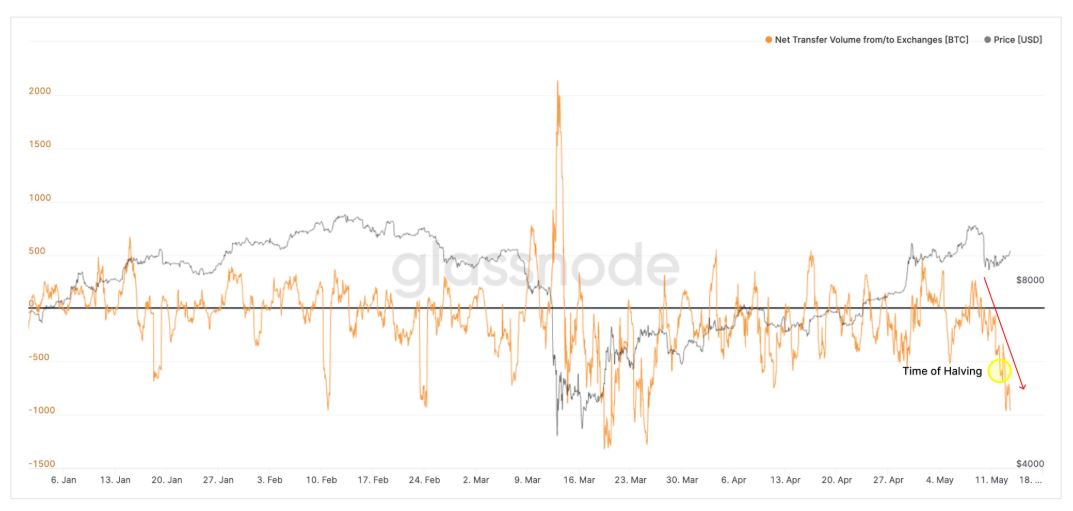Bitcoin
As Bitcoin exchanges continue to lose BTC, can DEXs take advantage?

Bitcoin has been noting a lucrative turn of events in 2020, while also overcoming a difficult period that began in March. With the threat of COVID-19 on the world economy still a major concern, the digital asset industry has seemingly carried on with its business, with traders now seemingly content with the present market situation.
However, not every institution involved in the crypto-space is noting such positive statistics, including the collective industry of Bitcoin exchanges.

Source: Glassnode
According to Glassnodes’ latest data, the net-exchange flow of Bitcoin has continued to fall as exchanges continued to lose Bitcoin from their platforms. The trend has been ongoing since the price collapse on 13 March, with the attached chart suggesting that over 24000 BTC were removed from exchanges since the halving on 11 May.
Many in the community speculate that the net exchange flow of Bitcoin may indicate that either, users are taking matters into their own hands to protect their crypto-assets, or that increasing hodling sentiment is slowly taking over the market.
Is this change irreversible or will trust in institutions come back?
The trust factor or basically the ‘lack of it’ in exchanges may have been aggravated due to the recent DDoS attacks on BitMEX and Binance. This, despite the fact that many believe that the losses suffered by investors on BitMEX were largely due to the mismanagement of overleveraged trades by the platform.
In the case of Binance, CZ had claimed that ‘self-perceived competitors’ were responsible for the DDoS attack, with such parties looking to taint the exchange’s reputation rather than facilitating losses.
Whatever the reason may be, it is not helping the cause of these centralized exchanges. Now, such a situation may eventually open the doors for non-custodial solutions.
Although non-custodial solutions have not been very popular over the past year, Dune Analytics suggested that in February 2020, DEX volumes on Ethereum rose to an all-time high of $372 million. It was also suggested that more than $601 million was traded on DEX platforms within the first two months of 2020. The total DEX volume for the whole of 2019 was $2.37 billion.
Now, while this may stipulate a gradual shift from centralized exchanges to DEXs, it is important to note that the bZx exploit in February raised fundamental questions against the platform’s perceived decentralized system.
It is still early to say whether these centralized exchanges will be ousted by DEXs, but the current trend does not paint an optimistic picture for them.

